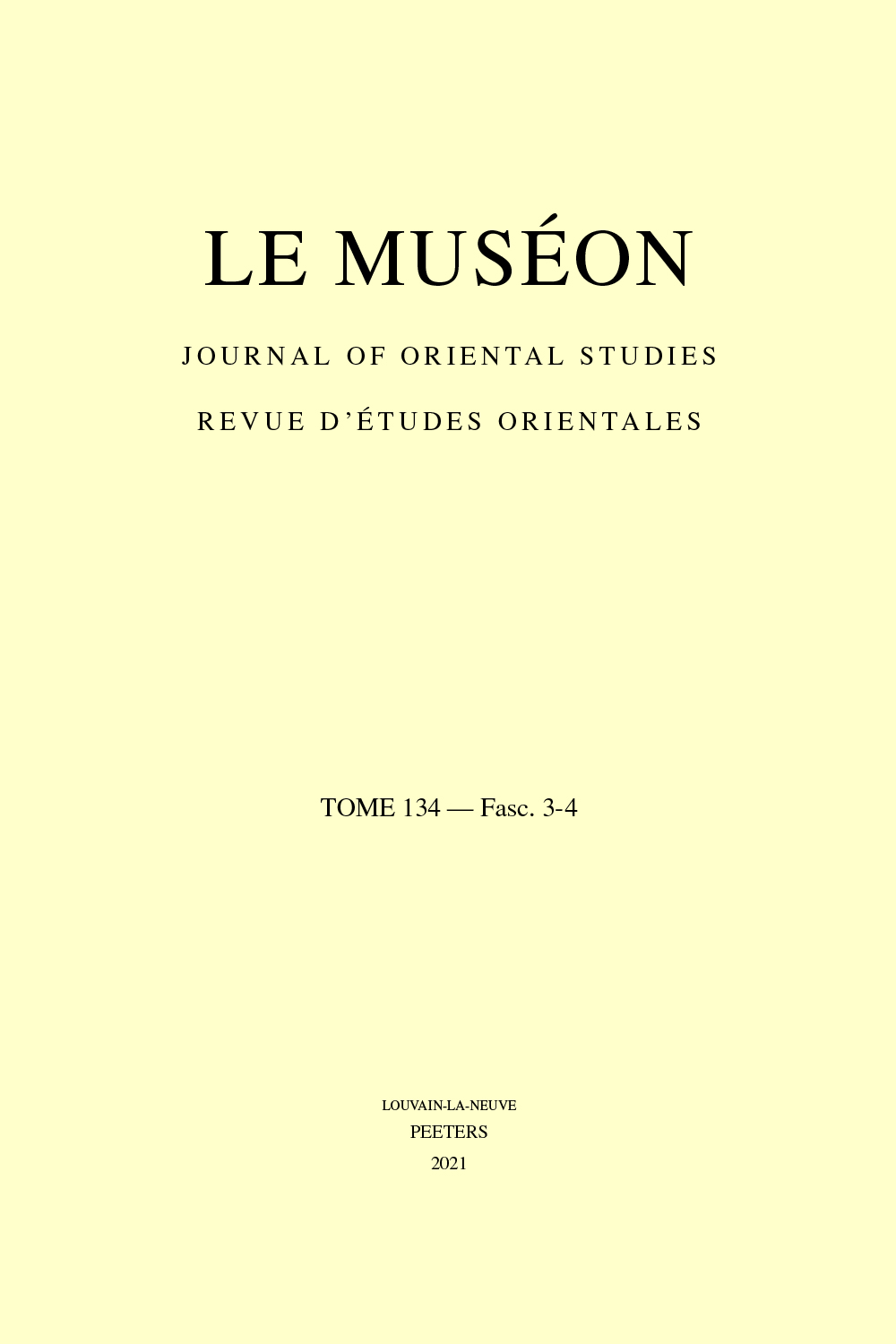 previous article in this issue previous article in this issue | next article in this issue  |

Preview first page |
Document Details : Title: A Phenomenology of Armenian Studies Subtitle: The Discipline and the «National» Meta-polis Author(s): DADOYAN, Seta B. Journal: Le Muséon Volume: 121 Issue: 1-2 Date: 2008 Pages: 213-229 DOI: 10.2143/MUS.121.1.2120507 Abstract : Focusing mainly on Armenian history and philology, this paper is a phenomenology because with least possible essentialism, it takes Armenian Studies primarily as a principle of classification in the humanities. Otherwise, it is a quest into the transcendental or the a priori level of Armenian historic thinking and writing, as distinct from the actual processes on the ground. The most basic of the issues this questioning raises concerns the relationship between the historic accounts/narratives on the one hand and on the other, the “national” meta-polis, or the temporal-spatial totality of the cultural-political processes that constitute what is known as the Armenians. The author observes that while the circumstances of the Armenians everywhere have been in constant change, the disciplines of social sciences have lagged behind and the quasi-epic classical narratives of the 5th century – rejuvenated in the 19th century – maintained their hold on the Armenian universe, both the nationalistic and the so called “objective” trends. The Armenological landscape today is a reality distinct from the realities of the Armenian historic experience. Furthermore, both the reconstructionist-“objective“(mainly in the west) and constructionist-nationalist (in the Republic and outside too) trends in Armenian Studies have a modernistic faith in the correspondence between their knowledge and reality, while we see that many names and episodes have turned into mere signposts and any new research and counter-intuitive statements that demystifies them is overlooked or rejected. It is forgotten that whatever the approach to history, considerable philosophical sophistication is required as well as the assistance of sociology, arts, and other human sciences. In view of the triangle of the intellectual, the public and the national institutions, and as chairs, conferences, institutions, mass media and mass culture manufacture knowledge and values for the consumption of the Armenian public and the world, the task of cutting through sedimentations falls upon the intellectuals as social critics and creators of alternative cultures. |
|


